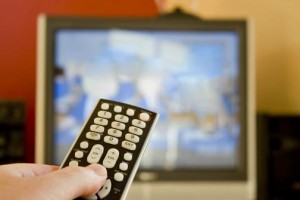Senate bill goes after illicit paid TV decoder suppliers


For years, Puerto Rico’s cable providers have been fighting the problem of service theft by adopting measures and installing equipment to protect their systems.
The Senate Judiciary Committee has scheduled a hearing this week to analyze Bill 410, which proposes to ban the sale, installation, tampering, and alteration of equipment for satellite, cable television, and similar paid television services, punishing such activities with a fine, jail time or both.
The bill filed by Sen. Ramón Luis Nieves-Pérez would add a clause to the Puerto Rico Penal Code to criminalize such acts.
“The sale, installation and use of equipment that decodes the encrypted signal from cable companies and satellite television without the consent of the company providing the service has proliferated in Puerto Rico,” the bill states.
“The installation and use of this decoder equipment without the authorization of the company degrades the signal and increases the cost to subscribers who sign up to the service legitimately,” the bill further noted. “In addition, they could be violating the copyright of those who create programming.”
For years, Puerto Rico’s cable providers have been fighting the problem of service theft by adopting measures and installing equipment to protect their systems. Two years ago, OneLink sought — and obtained — a waiver from the Federal Communications Commission to scramble the signal of its basic-service tier, which was stolen most frequently.
In its petition, the carrier — now owned by Liberty Puerto Rico — told the FCC that Puerto Rico’s cable theft problem was almost twice the national average. Both Liberty and the island’s southern region’s provider, Choice Cable, have also taken steps to ward off signal theft, which ultimately spoils the service and ends up costing paying customers more.
Cable theft also affects the government’s coffers in two ways: (1) the Telecommunications Regulatory Board, which regulates the cable industry, receives lower franchise fees from providers who pay according to the revenue they generate, and (2) as users turn to decoders to obtain service, they avoid paying related sales and use tax, taking away from the General Fund.
According to the TRB’s numbers, cable television subscriptions have dropped by about 22 percent from 2002 to 2012. Because the agency does not regulate satellite or Internet-based paid TV services, it does not track those numbers.
While Puerto Rico already classifies the act of interfering with communications equipment and systems as a misdemeanor, the bill to be reviewed during public hearings Thursday seeks to extend jurisdiction to tampering with telephone and information services, such as Internet access. The measure mirrors what other states like Florida and Ohio have done to prohibit the unauthorized reception of paid television signals.
“Given the negative impact the proliferation of these devices has on our economy, this Legislature deems meritorious to ban their sale, installation and use. First, as a matter of public policy, undue interference should not be allowed to undermine the enjoyment of services that other citizens legitimately acquire,” the bill states.
“Second, we can not turn a blind eye to the impact that the unauthorized use of this type of equipment has on the public coffers.”
If the bill is approved, those caught selling in the act of tampering with cable or satellite services, or related technology, could face a fine of up to $3,000, or three years in jail, or both.
The hearing will take place at the María Martínez room located on the first floor of the Senate annex at 9:30 a.m.













